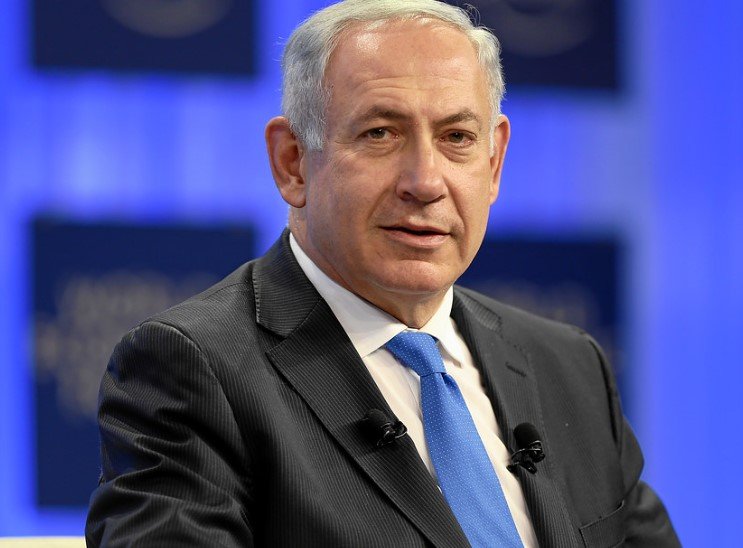Israeli Prime Minister Benjamin Netanyahu has halted a major $35 billion natural gas agreement with Egypt, citing concerns over Egyptian troop movements in the Sinai Peninsula. This decision, announced on September 2, 2025, links the deal’s progress to alleged violations of the 1979 peace treaty and comes amid Egypt’s ongoing energy shortages.
Background on the Massive Gas Agreement
The deal in question involves exporting about 130 billion cubic meters of natural gas from Israel’s Leviathan offshore field to Egypt through 2040. Signed just three weeks ago by partners including NewMed Energy and Ratio, it aimed to nearly triple current gas supplies and boost Israel’s economy with royalties.
This agreement builds on existing ties that started in 2019, when Israel began sending gas to Egypt. Experts say it could generate billions in revenue for Israel while helping Egypt address its declining domestic production from fields like Zohr. Recent reports show Egypt’s gas output dropped by 20 percent in the past year, leading to frequent power outages.
The pact was hailed as Israel’s largest energy deal ever. It followed a 2022 trilateral arrangement with the European Union to redirect Eastern Mediterranean gas to Europe, highlighting the region’s growing role in global energy markets.
Reasons Behind the Freeze
Netanyahu’s office stated the halt stems from claims that Egypt has breached the 1979 Camp David Accords by increasing military presence in Sinai. Israeli media reports accuse Cairo of building tunnels, extending runways, and deploying extra troops and armor without proper coordination.
These allegations surface at a tense time. Israel has pushed for stricter monitoring in Sinai, even lobbying U.S. officials for more oversight. Netanyahu insists on personal approval and consultations with Energy Minister Eli Cohen before proceeding.

Critics argue this move uses energy as leverage. Egypt has been vocal against Israel’s actions in Gaza, supporting international calls for a ceasefire. The freeze ties into disputes over the Philadelphi Corridor, a border area where Israel claims smuggling occurs, though Egypt denies this.
Here are key points from the 1979 peace treaty related to Sinai:
- Limits Egyptian forces to specific zones for security.
- Requires mutual consent for any military changes.
- Establishes a demilitarized buffer to prevent conflicts.
- Includes provisions for joint monitoring by international observers.
Impact on Egypt’s Energy Crisis
Egypt faces severe energy challenges, with daily blackouts affecting millions. The country’s reliance on imported gas has grown as local reserves dwindle, making the Israeli supply crucial for stability.
Freezing the deal could worsen shortages. Analysts predict Egypt might seek alternatives from Qatar or Algeria, but costs could rise by 15 percent. In 2024, Egypt imported over 10 billion cubic meters from Israel, covering a significant portion of its needs.
This leverage puts pressure on President Abdel Fattah el-Sisi’s government. Public sentiment in Egypt, already strained by economic issues, might turn against deeper ties with Israel amid the Gaza conflict.
| Aspect | Current Situation | Potential Impact of Freeze |
|---|---|---|
| Gas Imports | 10+ billion cubic meters yearly from Israel | Shortages could increase blackouts by 30% |
| Economic Cost | $35 billion deal value over 15 years | Higher prices from other suppliers, adding $5 billion in costs |
| Domestic Production | Down 20% from peak | Forces reliance on costly LNG imports |
| Political Pressure | Ties to Gaza border disputes | Strains Egypt-Israel relations further |
Broader Geopolitical Ramifications
This development ties into wider Middle East tensions. Israel’s war in Gaza, ongoing since October 2023, has killed over 40,000 people and displaced millions, drawing global criticism. Egypt has mediated talks and pushed for aid access, clashing with Israel’s border control demands.
The gas freeze might influence negotiations on Gaza’s future. Some experts see it as part of a strategy to secure concessions on security issues. Meanwhile, U.S. involvement in monitoring Sinai adds another layer, especially with the incoming Trump administration’s potential policies.
Regionally, this affects energy dynamics. The Eastern Mediterranean gas forum, including Israel, Egypt, and others, aimed for cooperation. But disputes like this could delay projects and impact Europe’s efforts to diversify away from Russian gas.
Logical reasoning suggests Netanyahu’s timing aligns with domestic politics. Facing probes into October 7 failures and reservist refusals to serve in Gaza, he might use this to project strength.
What Happens Next?
Experts predict talks could resume if Egypt provides assurances on Sinai deployments. Netanyahu has linked the deal to “security guarantees,” possibly including Gaza border controls.
For Egypt, options include diplomatic protests or seeking arbitration under the peace treaty. Recent events, like protests against the original deal, show public backlash could grow.
In the long term, this might push Egypt to invest more in renewable energy. The country plans to add 10 gigawatts of solar and wind power by 2030, reducing import dependence.
As this story develops, share your thoughts in the comments below. What do you think this means for Middle East peace? Follow for updates and spread the word to keep informed.
